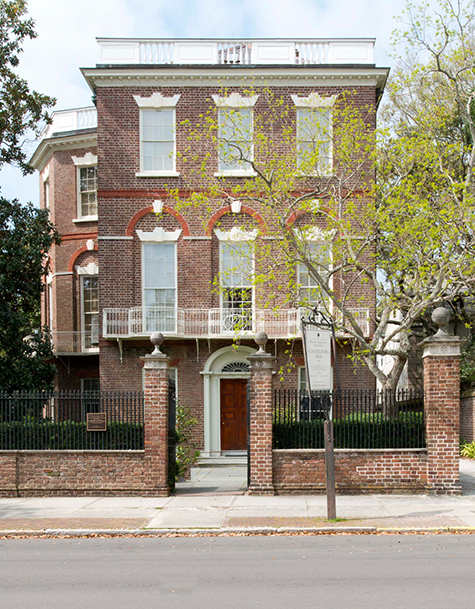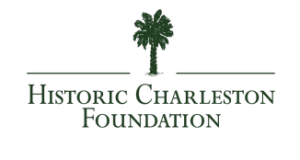Historic Charleston Foundation commits $100K to kickstart new archaeology at Nathaniel Russell Kitchen House
August 13, 2024The next phase of the Nathaniel Russell Kitchen House Project is now underway! The Foundation’s Board of Trustees committed $100,000 to kickstart this important project at the c.1808 historic house museum. In addition, the Foundation aims to raise awareness in the community that further support will be needed to advance this initiative. This new phase of archaeology is the latest part of an exciting initiative to learn even more about Charleston history, focusing specifically on the lives of the enslaved men and women on the property.
Earlier phases of the Kitchen House project have already contributed immensely to our understanding of this city’s complex and rich history, particularly the African influences on Charleston’s unique cuisine. The sheer volume and variety of seeds of African origin, including African rice, benne, okra and African runner peanuts, has researchers reconsidering established scholarship. Some of the earliest seeds of African origin ever found in America have been discovered beneath floorboards and within the walls of the Kitchen House.
Over the coming weeks, sought-after archaeologist Andrew Agha, PhD RPA and preservation contractor Richard Marks, Charleston-based preservation contractor, will fully excavate the Kitchen House cellar, expanding on previous archaeological studies and providing access to secure the structure’s floors and brick hearths. This is an exciting and necessary step forward in the Foundation’s goal of fully interpreting this incredibly intact domestic space and advancing the knowledge of our shared history. To accompany this work, the HCF is excited to offer opportunities for the public to learn and engage in a series of programs called, Archaeology in Action: The Kitchen House.
COME AND SEE ARCHAEOLOGY IN ACTION!

PAST ARCHAEOLOGY
The c.1808 Nathaniel Russell House Museum is no stranger to archaeological work. In 1982, a small volunteer crew screened soil from a garden installation. In 1990, installation of a new HVAC system following Hurricane Hugo entailed extensive trenching for ductwork and conduit lines. In 1994-1995, The Charleston Museum conducted archaeological work as part of an extensive Historic Structures Report and between 2003-2006 further archaeological excavations revealed three successive, and well-preserved, garden layouts.
Each of these excavations have provided more details into the daily lives and home of the Russell family, but to learn more about the enslaved men and women, archaeologists would need to excavate the areas around the Kitchen House. In 2021, the Nathaniel Russell Kitchen House Project entered its first phase. Martha Zierden, Curator of Historical Archaeology at The Charleston Museum (now retired), and her team were the first to excavate the Kitchen House Cellar the excavated unit was rich in artifacts from the Russell family time-period, including porcelain sherds, straight pins, brushes, combs, toothbrushes, glass, clay pipes, and a fire insurance marker, the largest intact find of the dig.
While the 2021 excavation was rich in artifacts and new information, there was still a portion of the cellar that the team was unable to reach and that’s exactly where Andrew Agha and his team are planning to dig with the goal of expanding our knowledge of the enslaved men and women to further inform the interpretation of the Nathaniel Russell Kitchen House.
Additional resources:
More about Andrew Agha, PhD RPA: https://andrewagha.weebly.com
Kitchen House Project on YouTube: https://hcfsc.info/3JNeoZi
Archaeology at the Nathaniel Russell House, blog: https://hcfsc.info/nrharch20241
About Historic Charleston Foundation:
Established in 1947, Historic Charleston Foundation (HCF) is a non-profit organization whose mission is to advocate for a future for Charleston that honors and protects its people, places, culture, and community. In its 77th year, the Foundation is known for its preservation and advocacy programs including protective covenants and easements; education and outreach; and it is the first organization in the country to establish a revolving fund to acquire and preserve historic buildings, a model now replicated in historic communities across the nation. HCF is also the proud steward of two historic house museums: the Nathaniel Russell House, c. 1808 and the Aiken-Rhett House, c. 1820., both open to the public for tours daily. In the spring, HCF presents The Charleston Festival, formerly the Festival of Houses & Gardens, this fundraising event is a month-long celebration of history, preservation, design and all things Charleston. TheCharelstonFestivalSC.org. HistoricCharleston.org





















